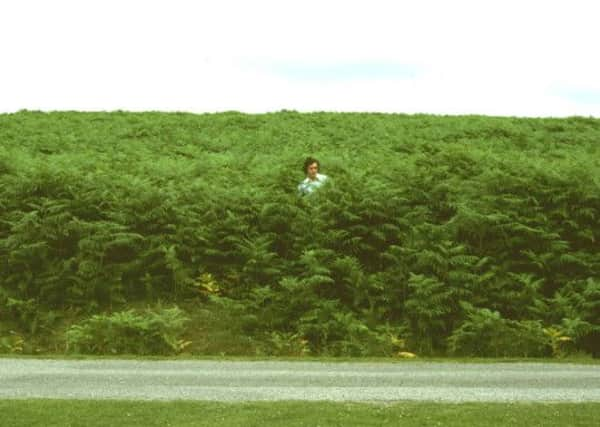Landlines: Chemicals needed to control bracken


It is miserable stuff to walk through, but much worse from farming and environmental points of view it swamps almost every other kind of plant.
It gradually becomes monoculture on a hillside, useful to neither man or beast, and my hillwalking and farming acquaintances confirm it is spreading remorselessly. The problem, as with most pernicious plant growth such as the Japanese knotweed, is that bracken is extremely difficult to kill off or control. As with knotweed the root system that helps it spread is resistant to most chemicals.
Advertisement
Hide AdAdvertisement
Hide AdWhich brings us to asulam, marketed as Asulox. Introduced in the mid-60s, asulam sprayed from helicopters with follow-up hand spraying, has been effective. But bracken control in Britain, particularly Scotland, has only been a small part of the chemical’s use world-wide.
Elsewhere, it was used to control broad-leaved weeds in crops such as sugar cane, cocoa and spinach which are for human consumption.
Not enough evidence has been produced to show that asulam is not a danger to human health so several years ago the EU banned it.
The irony is that almost all countryside groups from farmers’ unions to bird watchers and including The Heather Trust, coming together under the voluntary Bracken Control Group, are in favour of asulam as the most effective available method of controlling bracken. Cutting, crushing, rolling and pigs rooting – all possibly viable on small areas – have no chance of controlling the way bracken is spreading across large areas of Scotland and parts of northern England.
Advertisement
Hide AdAdvertisement
Hide AdLobbying has brought a temporary reprieve, but this year’s extension of use ends on September 15. After October 31 any container of the chemical found on a farm will be illegal.
As no one eats bracken and spraying is carefully monitored for its possible effect on water courses
It seems illogical to ban asulam from what is a niche use, but vitally important to those affected.
Would it help to get some EU legislators to try walking through head-high bracken on a Scottish hillside for an hour or two?
...
Advertisement
Hide AdAdvertisement
Hide AdThe organic versus non-organic argument will never end. A few years ago a Food Standards Agency report concluded that food produced organically had no nutritional advantages over the 97% of food produced in Britain non-organically.
Now a Newcastle University study has concluded that organic food does provide us with useful anti-oxidants, is lower in pesticide residues and better for us.
The Crop Protection Association responded by pointing out that the pesticide residues in question amounted to 0.1 mg per kilo, helpfully adding that was the equivalent of a fly on a ten tonne truck. They also added that said the important thing is for a nation that eats vast amounts of processed gunk – my interpretation – to eat more fruit and vegetables regardless of whether they are organic or non-organic.
My sentiments exactly.